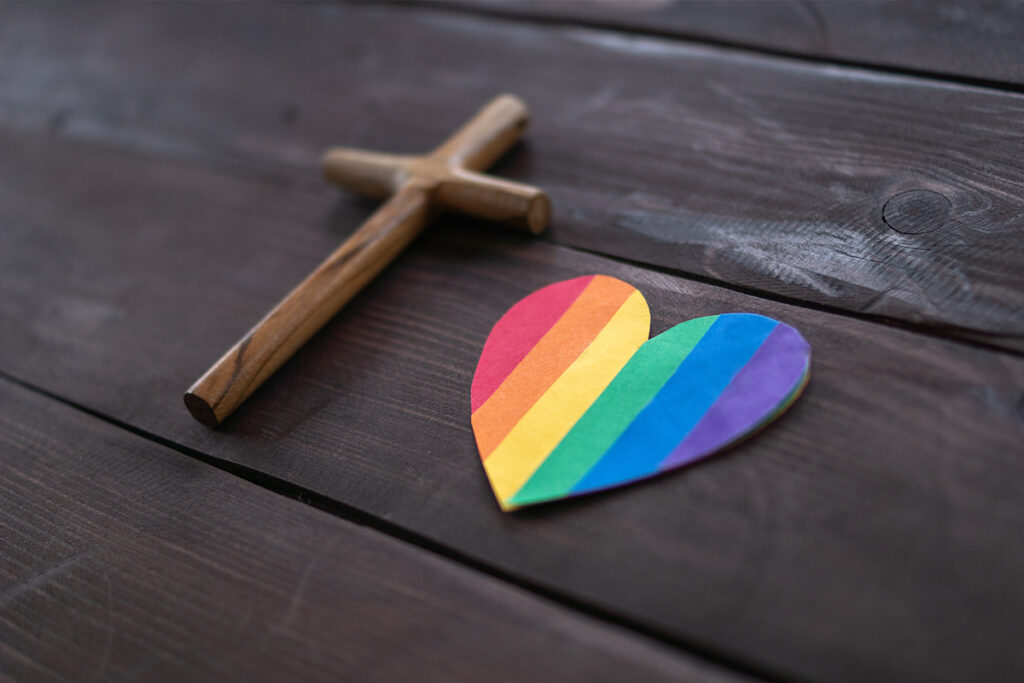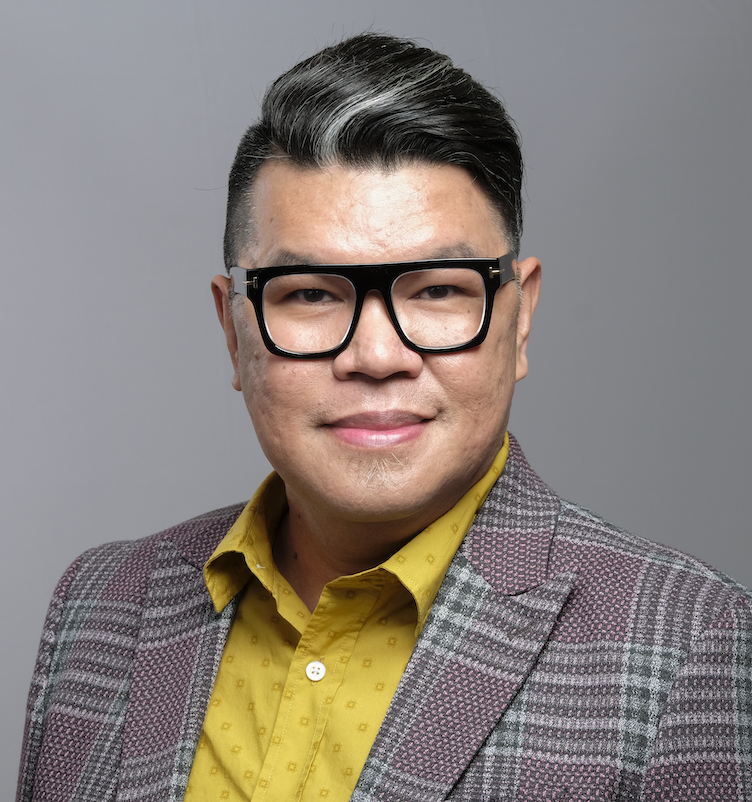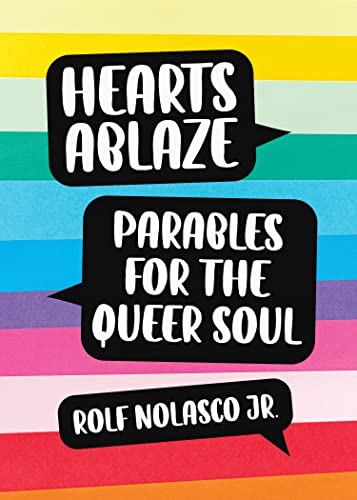Queer Spiritual Spaces
June 21, 2022

By Dr. Rolf R. Nolasco, Jr.
This is an excerpt from the book Hearts Ablaze: Parables for the Queer Soul, coming out on October 18, 2022. It is available for pre-order now!
The queer community is a gathering of individuals with intersecting identities that deepens our appreciation for our differences and expands our opportunities for solidarity. Pride events make this most visible. The celebratory atmosphere of colors, gender identities and expressions, sexualities, shows of affection and belonging, and allyship make manifest exultant pride in being queer.
But there is another layer to pride that is quite compelling: queer folk taking over the streets as a way of claiming their queer existence in the public square. It is indeed a form of resistance against the border created by a cis/heterosexist world, a reclamation of physical space that is ours to inhabit just like anyone else. Pride is a political statement, a soulful and brave declaration of our right to exist and flourish. There is, of course, a side to these spaces that the community needs to be vigilant about if it is to continue the work of justice making. We need to queer these spaces constantly so that they don’t become sites of discrimination and exclusion.
Queer relationships and intimate encounters are shaped quite strongly by these intersecting identities, and like most social spaces, we too can be or have been complicit in stoking experiences of ageism, biphobia, classism, dis(ableism), racism, and transphobia within our own community. We must, for our own good, well-being, and collective flourishing be each other’s support and champion.
For spiritually and religiously oriented queer folk, occupying sacred spaces is both an act of resistance against the boundaries drawn by the cis/hetero patriarchy and a response to the abiding sense of the transcendent. Spaces, particularly those considered spiritual or sacred, are not merely things to be inhabited. They are not empty spaces to be filled in; instead, they are already configured and constituted by the kind of theology and practices the dominant group deemed holy, spiritual, or godly, to which everyone must adhere or follow.
Take the punitive and harmful theology and polity of the United Methodist Church toward queer clergy, as an example. For the longest time, the altar has been manned (pun intended) mostly by the dominant group, white heterosexual men (WHM). They are protective of the space and what it symbolizes for them—the seat of divine power. The performative nature of this carefully choreographed ritual act cements allegiance to cis/heteronormativity in sacred spaces, which in turn bans and banishes those who challenge this religious arrangement. Regular sightings of WHM inhabiting and hogging these spaces on a regular basis make them look natural, expected, and divinely sanctioned.
Queer clergy create disorder that disorients and disrupts the spaces that have been owned and defended by the dominant group. The presence of queer bodies threatens and interrogates their masculinity and their conceptions of God as a white heterosexual male. Related to this, queer theologies that underpin the subversion of these spaces make explicit the very gendered and sexed origin of their own theology. The fervent and passionate display of queer spiritualities challenges their sense of order and control as to how the sacred is experienced and expressed. The response is predictable. They resort to taking control back by banning queer clergy from exercising their gifts and by extension delegitimizing their iconic status as divinely queer.
But queer clergy are not backing down. They take to the streets during Pride, bolstered by a community of other queer siblings and queer allies, and they sashay up with fierceness and confidence to the altar and into the pulpit dispensing their unique gifts and graces without apology. God’s beloved queers are on the move creating disturbance and shaking the very structures that have kept everyone—men, women, genderqueer, trans, and children of all shapes and colors—chained to their perceived superiority.
Queer folk require and must continue to cultivate queer spiritual spaces for us to continue to hear the gospel of liberation and understand and embody what this means for our lives and those around us. This kind of habitat deepens and expands our roots, so we remain deeply anchored when elements of all sorts threaten to uproot, destroy, or turn rich soil into a wasteland. The nutrients provided by these spaces also strengthen our resolve to not let the principalities and powers—structures of oppression—diminish or question our belovedness, snuff the light within, and deny us our right to call these sacred spaces home.

Dr. Rolf R. Nolasco, Jr. is the Rueben P. Job Professor of Spiritual Formation and Pastoral Theology at Garrett-Evangelical Theological Seminary and director of the Rueben P. Job Institute for Spiritual Formation. He is an experienced professor, trained in pastoral and counseling psychology, mindfulness and contemplative spirituality, and affective neuroscience. Nolasco is also a psychotherapist, published author, and has vast experience in cross cultural communications from living and working across the world within varying social and cultural backgrounds. He is the author of God’s Beloved Queer (Wipf and Stock, 2019), The Contemplative Counselor: A Way of Being (Fortress Press, 2011), and Compassionate Presence: A Radical Response to Human Suffering (Cascade Books, 2016).

Hearts Ablaze: Parables for the Queer Soul (forthcoming October 18, 2022) is a new look at ten selected parables of Jesus, that expands the scope of interpretation of each story to highlight God’s extravagant welcome of all people. The perspective in the reflections is deeply personal and written to be used by both individuals and groups. Queer affirming churches, seminaries, and retreat centers will benefit from this resource as they continue to champion the flourishing of their queer siblings in Christ.

